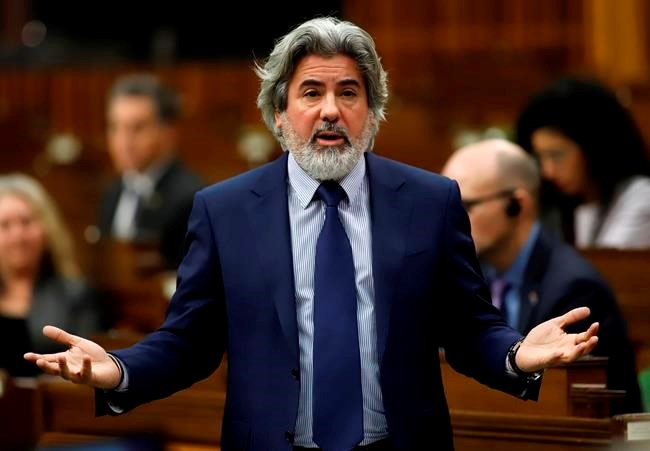OTTAWA — The House of Commons has adjourned for a six-week Christmas break without resolving a dispute over how it should resume in the new year.
A motion that has allowed the Commons to sit in a hybrid format throughout the fall — with about 80 MPs in the chamber and the rest participating virtually to help curb the spread of COVID-19 — expired Friday.
Without an agreement about how to proceed in future, the Commons will resume all normal operations the next time it sits.
It is currently scheduled to resume on Jan. 25 but could be recalled sooner to deal with an emergency or with possible amendments by the Senate to the government's bill on medically assisted death.
Theoretically, the lack of an agreement means all 338 MPs would have to be in the chamber, despite the still-raging pandemic. And all members would have to be physically present for Commons committee meetings as well.
More likely it means another round of frantic behind-the-scenes negotiations among the parties to reach an eleventh-hour agreement on how to resume proceedings without endangering public health. That's what has happened in the past when time-limited agreements on pandemic parliamentary proceedings have expired.
The minority Liberal government has floated a proposal to have the Commons continue from Jan. 25 until the end of June with same hybrid format except for one change: MPs would use a new app that would making virtual voting faster and easier.
Throughout the fall, they've been voting remotely via videoconference, a cumbersome process that can take up to an hour per vote. Government House leader Pablo Rodriguez said Friday that Commons technicians have developed facial recognition technology that would allow MPs to use their phones to vote with one touch of a button.
He said the voting app has been tested and is ready to go and that all parties agree with his proposal — except the Conservatives.
"I don't know (why Conservatives object). Maybe because they're dinosaurs," Rodriguez said in an interview.
But Conservative House leader Gerard Deltell blamed the Liberals for standing in the way of an agreement because they object to his proposal to allow Commons committees to continue operating, as needed, during the break period.
"We just think that, OK, we cannot shut down the parliamentary system for six weeks," he said in an interview.
Deltell proposed a motion Friday, shortly before the Commons adjourned, calling for the hybrid format to continue until June, with committees able to meet over the break, as needed, at the request of four members from two parties.
He did not get the unanimous consent needed to pass the motion.
Rodriguez said Deltell's motion flew in the face of a request from the Commons administration to shut down proceedings completely for one month to give technicians time to update overtaxed technology and avoid a crash of computer systems in the new year.
However, Conservatives pointed out that the administration has also said emergency sittings of the Commons and committees could be accommodated, which Deltell said is all his motion was intended to allow.
The Bloc Québécois, meanwhile, has been floating its own proposal to have committees continue meeting next week and start up again on Jan. 18, which would leave a month clear for the tech updates.
Contrary to Rodriguez's assertion, Deltell said Conservatives are "very open-minded" about using the voting app. But they want to ensure it's fully tested before it's adopted.
"We're talking about voting in a minority government so each and every vote, each and every member, counts," he said.
NDP House leader Peter Julian and a spokesman for the Bloc Québécois also said more testing is needed.
Julian said the failure to reach an agreement before adjourning Friday "is really disappointing and irresponsible at a time of pandemic when Canadians want their institutions to function effectively and be there for them."
He called on all parties to get back to the spirit of collaboration that prevailed at the outset of the pandemic last March but declined to say who he thinks is responsible for the current impasse.
"I don't think casting blame is helpful."
This report by The Canadian Press was first published Dec. 11, 2020.
Joan Bryden, The Canadian Press



